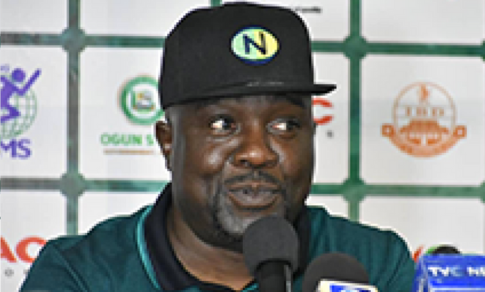For more than a decade, Akwa Ibom has served as the heartbeat of Nigerian sports — a modern-day Mecca for athletic excellence. From hosting high-profile Super Eagles matches at the iconic Godswill Akpabio Stadium to spearheading national tournaments, the state has led the charge in showcasing Nigeria’s sporting potential.
Now, Ogun State is boldly stepping into that spotlight. With a surge in sporting activities and new infrastructure, the state is fast becoming a rising force in Nigerian athletics. In recent years, Ogun has welcomed the Super Falcons, Flying Eagles, and hosted the National Sports Festival. Most recently, it played host to the prestigious African Athletics Championship (CAA), placing Abeokuta firmly on the continental sports map.
Speaking on the sidelines of the CAA, Bukola Olopade, Director General of the National Sports Commission, outlined a compelling vision: a future where every Nigerian state is transformed into a vibrant hub for sports development.
“I’ve spent nearly 30 years in the business of sports and have seen firsthand how it transforms lives—especially for our youth,” Olopade said. “That’s why we are committed to building a nationwide sports ecosystem.”
According to him, the right structures at the state level are key. “When every state has the right infrastructure, you solve half of the problems,” he explained. “Engaged youth become productive and peaceful, creating the calm and secure environment needed for sustainable investment and national development.”
Olopade cited Akwa Ibom, Delta, and Ogun States as leading examples of long-term commitment to sports growth. He also highlighted Enugu State as a rising contender, noting that its government now sees sports as a strategic driver of economic activity and small business development.
“Enugu is already positioning itself to host the National Sports Festival — a smart move,” he said. “When managed well, sports naturally attract people. It creates jobs, fuels entrepreneurship, and stimulates local economies.”
He believes Enugu could evolve into a major sporting hub in just a few years, generating positive ripple effects throughout the region.
Looking to the future, Olopade called for a broader and more inclusive national sports vision. “Kano has strong roots in football and basketball,” he said, “but we want to see other sports—badminton, volleyball, cricket, rugby—take root there too.”
He emphasized that real transformation will come only when Nigeria begins to see sports not merely as entertainment or a billion-dollar industry, but as a tool for youth empowerment, national unity, and sustainable growth.
“With momentum building from state to state, if this current trajectory continues, Nigeria could soon enter a golden era—where every region is not just playing the game, but winning across the board,” he concluded.








ADD A COMMENT :